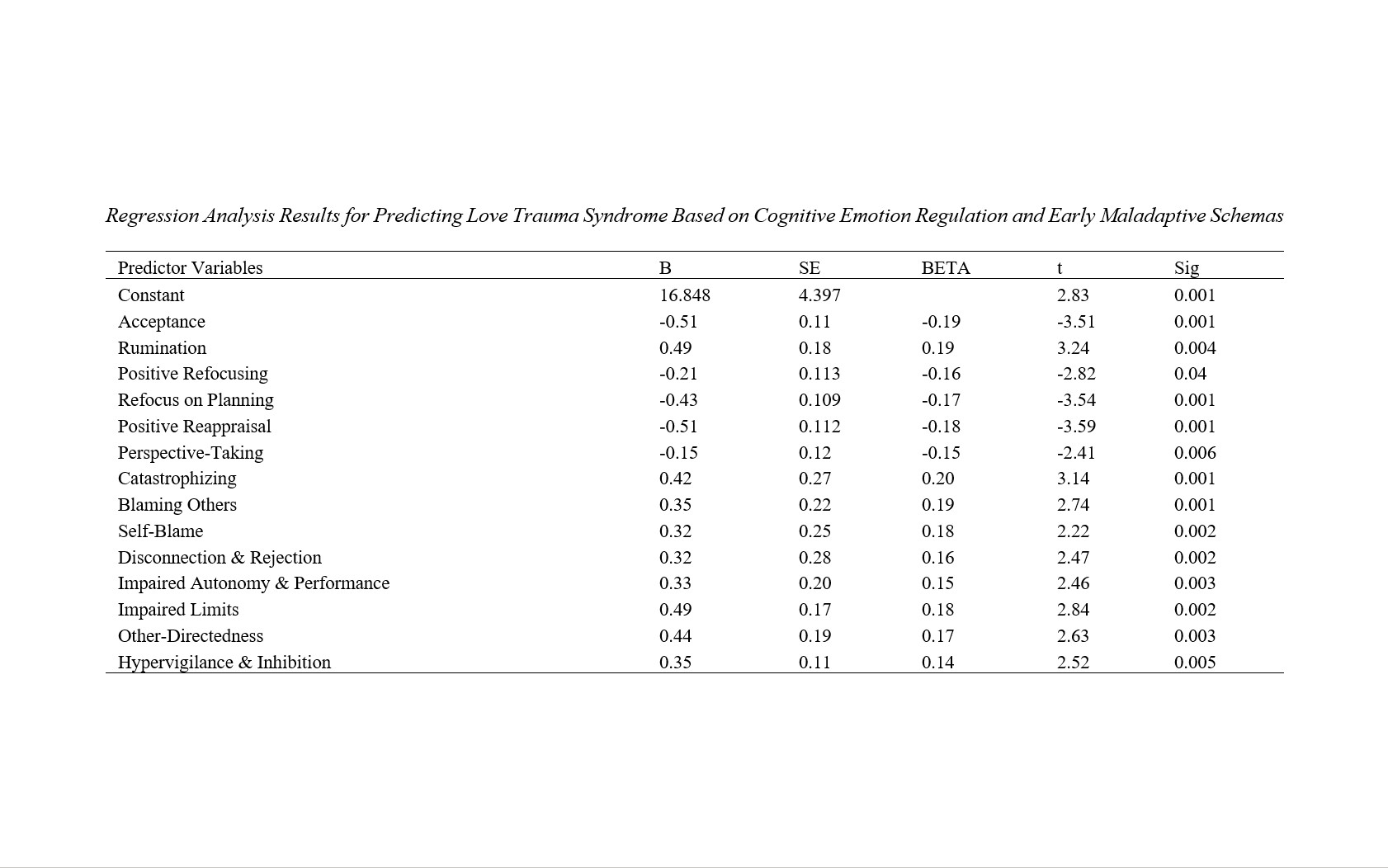Prediction of Love Trauma Syndrome Based on Cognitive Emotion Regulation and Early Maladaptive Schemas in Students with Emotional Breakup Experiences
Keywords:
Cognitive Emotion Regulation, Early Maladaptive Schemas, Love Trauma SyndromeAbstract
Objective: The present study aimed to predict Love Trauma Syndrome based on cognitive emotion regulation and early maladaptive schemas in students with emotional breakup experiences.
Methods and Materials: This research is considered applied in terms of its goal and descriptive-correlational in terms of methodology. The statistical population included all students from Islamic Azad Universities in Tehran. To select the research sample, 206 individuals who scored above the mean on the Love Trauma Syndrome Questionnaire were chosen through convenience sampling. The research instruments included the Love Trauma Inventory (LTI) (Ross, 1999), the Cognitive Emotion Regulation Questionnaire (CERQ) (Garnefski et al., 2001), and the Young Schema Questionnaire–Short Form (YSQ-SF) (Young, 1994). The data were analyzed using Pearson correlation and simultaneous multiple regression analysis.
Findings: The findings showed a significant negative relationship between cognitive emotion regulation and Love Trauma Syndrome (P<0.01) and a significant positive relationship between early maladaptive schemas and Love Trauma Syndrome (P<0.01). Additionally, cognitive emotion regulation and early maladaptive schemas predicted 53% of the variance in Love Trauma Syndrome (P<0.01).
Conclusion: Based on these findings, it can be concluded that since forming relationships during young adulthood is considered a significant life decision, focusing on cognitive emotion regulation and early maladaptive schemas, and providing education centered on these factors, can enhance interpersonal and emotional relationships.
Downloads

Downloads
Additional Files
Published
Submitted
Revised
Accepted
Issue
Section
License
Copyright (c) 2024 Niaz Yousefi (Author); Majid Zargham Hajebi (Corresponding Author); Ramin tabarraei (Author)

This work is licensed under a Creative Commons Attribution-NonCommercial 4.0 International License.








